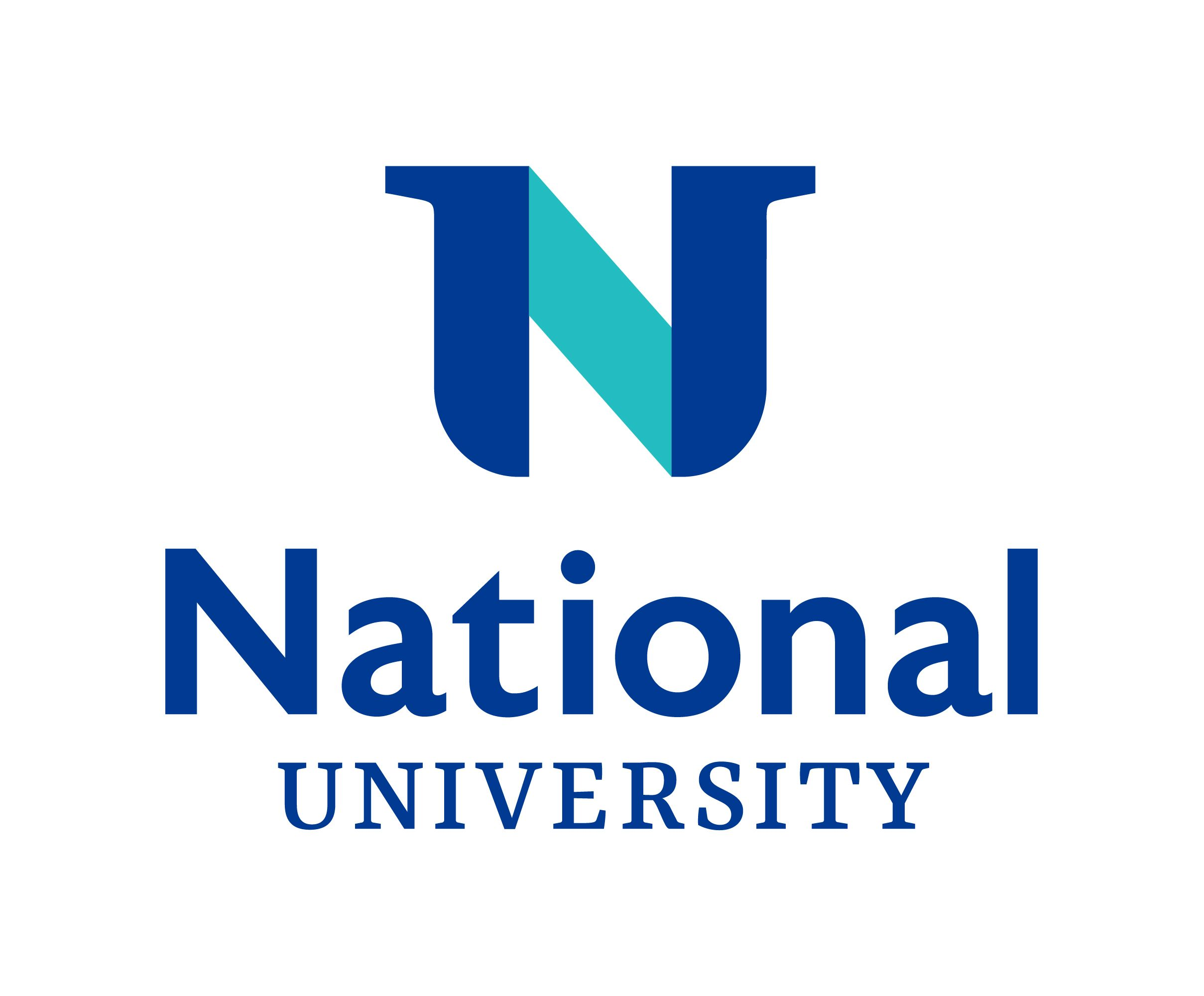 Walden University : MS in School Counseling (CACREP Accredited)
Walden University : MS in School Counseling (CACREP Accredited) Walden University : MS in Clinical Mental Health Counseling (CACREP Accredited, six specializations to choose from)
Walden University : MS in Clinical Mental Health Counseling (CACREP Accredited, six specializations to choose from) Northwestern University : Online MA in Counseling (CACREP Accredited)
Northwestern University : Online MA in Counseling (CACREP Accredited) Northwestern University : Master of Science in Marriage and Family Therapy (Complete your COAMFTE-accredited MFT online program in as few as 21 months. No GRE required.)
Northwestern University : Master of Science in Marriage and Family Therapy (Complete your COAMFTE-accredited MFT online program in as few as 21 months. No GRE required.) National University : Master of Science in Clinical Mental Health Counseling (Accredited. No GRE. Scholarships Available)
National University : Master of Science in Clinical Mental Health Counseling (Accredited. No GRE. Scholarships Available) Grand Canyon University : Master's Degree in Counseling (As a private university, GCU has the same in-state and out-of-state tuition.)
Grand Canyon University : Master's Degree in Counseling (As a private university, GCU has the same in-state and out-of-state tuition.) Liberty University : MA: Clinical Mental Health Counseling (CACREP Accredited) (Online with required intensives)
Liberty University : MA: Clinical Mental Health Counseling (CACREP Accredited) (Online with required intensives) University of Denver : Master of Arts in School Counseling (No GRE required)
University of Denver : Master of Arts in School Counseling (No GRE required) The Chicago School : M.A. in Clinical Mental Health Counseling (Online Programs. CACREP Accredited.)
The Chicago School : M.A. in Clinical Mental Health Counseling (Online Programs. CACREP Accredited.)What Is a Correctional Counselor?
A correctional counselor is a specialized type of counselor who works within the criminal justice system to assist inmates in managing behavior, understanding the consequences of their actions, and preparing for a successful reintegration into society. This role involves a deep understanding of psychological principles, criminal behavior, and rehabilitative techniques.
Consider a Featured Online Counseling Program
| School and Program Information | Online Program? Entry Requirements |
Course Information |
|---|---|---|
| Walden University
MS in School Counseling
 CACREP Accredited CACREP Accredited |
✔ Online
GRE scores not required |
School counselors help students overcome obstacles and shape successful futures. Walden’s online MS in School Counseling program will give you a solid foundation in school counseling theories, approaches, and best practices while enabling you to gain hands-on experience. Learn More |
| Walden University
MS in Clinical Mental Health Counseling
 CACREP Accredited CACREP Accredited |
✔ Online
GRE scores not required |
Mental health counselors play a valuable role in helping people cope with life’s challenges. Walden’s online MS in Clinical Mental Health Counseling program can help you become the competent, compassionate counselor you know you can be. Learn More |
| Northwestern University
Online MA in Counseling
 CACREP Accredited CACREP Accredited |
✔ Online
GRE Not Required Bachelor's Required |
Prepare to pursue licensure in as few as 18 months Learn MoreFull-time, part-time, and accelerated track options available |
| Northwestern University
Master of Science in Marriage and Family Therapy
COAMFTE Accredited |
✔ Online
GRE Not Required Bachelor's Required |
The COAMFTE-accredited MFT@Northwestern is offered by The Family Institute at Northwestern University. Full-time students can complete the program in as few as 21 months. No GRE is required, but applicants must hold an undergraduate degree. Full and part-time tracks available. Learn More |
| National University
Master of Science in Clinical Mental Health Counseling
WSCUC Accredited |
✔ Online
GRE Scores Not Required |
The Master of Science in Clinical Mental Health Counseling is focused on training highly skilled counselors to provide impactful and culturally sensitive mental health services in their communities. Learn More |
| Grand Canyon University
Master's Degree in Counseling
HLC and NASAC Accredited |
✔ Online
|
Clinical Mental Health Counseling master's degree emphases include: Childhood and Adolescence Disorders, Christian Counseling, Marriage and Family Therapy, and Trauma. Designed to meet the academic requirements of the National Board for Certified Counselors for the National Certified Counselor credential, the Certified Clinical Mental Health Counselor credential and the Arizona Board of Behavioral Health Examiners. As a private university, GCU has the same in-state and out-of-state tuition. Learn More |
| Liberty University
MA: Clinical Mental Health Counseling (CACREP Accredited)
 CACREP Accredited CACREP Accredited |
✔ Online
Online with required intensives |
Our CACREP-accredited master’s in counseling degree online can help you become an ethical, well-trained mental health counselor with the knowledge, values, and skills you need to empower others to make positive changes in their lives. Online and on campus. Training Champions for Christ since 1971. Learn More |
| University of Denver
Master of Arts in School Counseling
Designed to adhere to CACREP standards |
✔ Online
No GRE Required; Minimum GPA 2.5 Required |
Earn a Master’s degree in School Counseling online from the University of Denver. Learn from doctoral-level faculty in live classes and gain experience through mock counseling and in-field training. No GRE required. Complete in as few as 24 months. Learn More |
| The Chicago School
M.A. in Clinical Mental Health Counseling
 CACREP Accredited CACREP Accredited |
✔ Online
Bachelor's Degree Required. |
This online CMHC program prepares students for a career offering mental health services in a variety of settings; helping diverse clients through issues such as depression, anxiety, grief, low self-esteem, stress, relationship difficulties, and suicidal impulses. Learn More |
*Sponsored Counseling Programs
Online CACREP Accredited programs | Online MPCAC Accredited programs
Role and Responsibilities
The primary responsibilities of a correctional counselor include assessing inmate needs, developing rehabilitation plans, conducting individual and group therapy sessions, and monitoring progress. These professionals work closely with other correctional staff to ensure that the rehabilitation plans are effective and that the inmates are progressing towards their goals.
Correctional counselors also play a crucial role in crisis intervention, helping to manage and de-escalate situations within the prison environment that could potentially lead to harm. Their work is essential in creating a safer environment for both inmates and staff by addressing underlying psychological issues or conflicts.
Variations in the Role
While the core duties of correctional counselors are generally consistent, their specific roles can vary significantly depending on the type of facility and the population they serve. For instance, some counselors might focus more on substance abuse, providing counseling and support for inmates struggling with addiction. Others may specialize in anger management, sexual offense rehabilitation, or vocational training.
In addition to these specializations, correctional counselors might work in various settings, including state and federal prisons, juvenile detention centers, and private correctional facilities. Each setting demands unique skills and approaches, tailored to the age, sex, and severity of offenses of the inmate population.
 Walden University - MS in School Counseling (CACREP Accredited)
Walden University - MS in School Counseling (CACREP Accredited)
 Walden University - MS in Clinical Mental Health Counseling (CACREP Accredited)
Walden University - MS in Clinical Mental Health Counseling (CACREP Accredited)
 Northwestern University - Online MA in Counseling (CACREP Accredited)
Northwestern University - Online MA in Counseling (CACREP Accredited)
 Northwestern University - Master of Science in Marriage and Family Therapy (COAMFTE Accredited)
Northwestern University - Master of Science in Marriage and Family Therapy (COAMFTE Accredited)
 National University - Master of Science in Clinical Mental Health Counseling (WSCUC Accredited)
National University - Master of Science in Clinical Mental Health Counseling (WSCUC Accredited)
 Grand Canyon University - Master's Degree in Counseling (NASAC Accredited)
Grand Canyon University - Master's Degree in Counseling (NASAC Accredited)
 Liberty University - MA: Clinical Mental Health Counseling (CACREP Accredited) (CACREP Accredited)
Liberty University - MA: Clinical Mental Health Counseling (CACREP Accredited) (CACREP Accredited)
 The Chicago School - M.A. in Clinical Mental Health Counseling (CACREP Accredited)
The Chicago School - M.A. in Clinical Mental Health Counseling (CACREP Accredited)
Educational Pathways
Pursuing a career as a correctional counselor requires specific educational qualifications that lay the foundation for effective practice in the correctional system. Understanding the academic requirements will help you chart a course toward achieving your career goals in this challenging field.
Degree Programs
To begin a career in correctional counseling, you typically need at least a bachelor’s degree in psychology, criminal justice, social work, or a related field. However, to fully prepare for the complexities and responsibilities of a correctional counselor role, pursuing a master’s degree is highly recommended. Programs such as a Master of Science in Counseling or a Master of Arts in Clinical Psychology with a focus on forensic or correctional psychology are particularly valuable.
Importance of Specialized Courses
During your studies, it is crucial to engage in coursework that addresses specific challenges you will face as a correctional counselor. Key courses might include Introduction to Correctional Systems, Behavioral Psychology, Rehabilitation Strategies, and Crisis Intervention Techniques. These courses provide the theoretical knowledge and practical skills necessary for working effectively within a correctional setting.
Accreditation of Programs
When choosing a degree program, it’s essential to ensure that it is accredited by a recognized accrediting body. Accreditation ensures that the education provided meets the professional standards required for practice in the field. In the United States, the Council for Accreditation of Counseling & Related Educational Programs (CACREP) is a significant accrediting body for counseling programs. Ensuring your program is CACREP-accredited can greatly enhance your qualifications and readiness for certification and licensure as a correctional counselor.
Typical Curriculum for Correctional Counselors
The curriculum for a degree in correctional counseling is designed to equip students with the knowledge and skills necessary to succeed in this challenging field. Here, we outline some of the core courses you might encounter in both bachelor’s and master’s degree programs that prepare you for a career as a correctional counselor.
Core Courses
- Introduction to Correctional Systems – This course provides an overview of the penal system, including types of facilities, inmate populations, and the overall goals of incarceration and rehabilitation.
- Criminal Psychology – Students learn about the psychological factors that influence criminal behavior, including theories of deviance and psychological assessments used in corrections.
- Rehabilitation Strategies – Focuses on methods for promoting positive change in inmates, such as cognitive-behavioral therapy and other therapeutic interventions.
- Ethics in Correctional Counseling – Covers ethical considerations specific to working within the correctional system, including confidentiality, professional boundaries, and ethical dilemmas.
- Crisis Intervention Techniques – Teaches strategies for managing emergencies within correctional facilities, including de-escalation methods and crisis response planning.
Elective Courses
Beyond the core courses, many programs offer electives that allow students to specialize further or explore areas of particular interest. Electives might include:
- Substance Abuse Counseling
- Anger Management Techniques
- Forensic Mental Health
- Legal Issues in Correctional Counseling
Skills Development
In addition to coursework, degree programs often incorporate practical experiences, such as internships or practicums. These opportunities allow students to apply their learning in real-world settings, gain professional experience, and develop essential skills under the supervision of experienced correctional counselors.
Pros and Cons of Becoming a Correctional Counselor
Choosing a career as a correctional counselor involves considering both the rewarding aspects and the challenges of the role. This section provides a comprehensive look at the benefits and potential drawbacks to help you make an informed decision about entering this field.
Pros
- Meaningful Impact – Correctional counselors have a significant opportunity to make a difference in the lives of individuals who are often overlooked by society. By assisting inmates in their rehabilitation and reintegration, you contribute to reducing recidivism and enhancing community safety.
- Diverse Opportunities – The skills acquired in this profession are applicable in various settings beyond traditional correctional facilities, such as juvenile centers, probation agencies, and community-based rehabilitation programs.
- Professional Growth – The field of correctional counseling provides ample opportunities for advancement, from direct counseling roles to administrative and leadership positions within correctional facilities and larger criminal justice organizations.
Cons
- High Stress Levels – Working within the correctional system can be intensely stressful, dealing with inmates who may have complex psychological needs and potentially volatile behaviors.
- Emotional Toll – The nature of the work can be emotionally draining, as correctional counselors often deal with challenging cases, including violent offenders or individuals with severe mental health issues.
- Safety Concerns – While safety protocols are strictly enforced, working in correctional facilities inherently carries risks due to the possibility of violent incidents.
Making Your Decision
Deciding to become a correctional counselor should involve a thorough assessment of your personal strengths, career ambitions, and resilience. If you are passionate about making a rehabilitative impact in the criminal justice system and possess a strong capacity for empathy and stress management, this career could offer a fulfilling path.
Career Opportunities in Correctional Counseling
A career as a correctional counselor opens up a wide range of job roles within the correctional system and related areas. This section highlights the diverse positions that correctional counselors can hold and the various environments in which they can work.
Within Correctional Facilities
- Inmate Counselor – Primary role involves working directly with inmates on behavior management, personal development, and preparation for reintegration into society.
- Case Manager – Responsible for overseeing the rehabilitation process for individual inmates, including coordinating with other services to provide comprehensive care.
- Crisis Intervention Specialist – Focuses on handling emergencies and high-stress situations within the facility, employing specialized training in conflict resolution and crisis management.
Beyond Traditional Roles
Correctional counselors also find opportunities in areas that intersect with the criminal justice and mental health fields:
- Juvenile Detention Counselor – Works with younger populations in juvenile facilities, focusing on early intervention and youth rehabilitation.
- Probation Officer – Often requires a background in correctional counseling, helping to monitor and support individuals on probation or parole.
- Community Correctional Counselor – Provides support and counseling services to individuals in community-based programs, aiming to prevent recidivism by addressing the root causes of criminal behavior.
Expanding Your Horizons
The skills developed as a correctional counselor, such as crisis management, interpersonal communication, and a deep understanding of human behavior, are highly transferable. These competencies allow professionals to transition into roles in policy development, correctional facility administration, and advocacy within the broader scope of criminal justice reform.
Job Outlook and Salary Expectations
The career prospects for correctional counselors are influenced by trends in the criminal justice system, government policies, and public awareness of mental health issues within correctional facilities. This section presents the latest data on job outlook and salary for correctional counselors, helping you to understand the potential economic stability and growth in this field.
Job Outlook
The job market for probation officers and correctional treatment specialists is expected to grow by 3% from 2022 to 2032, which aligns with the average growth rate for all occupations according to the U.S. Bureau of Labor Statistics (BLS). This growth suggests a steady demand for professionals in this field over the next decade.
Salary Information
As of May 2023, the median annual wage for probation officers and correctional treatment specialists was $61,800, according to the BLS. Salaries in this field start at around $41,700 for the lowest 10 percent and can go up to $105,220 for the highest 10 percent. This variation in pay reflects differences in factors such as geographic location, level of experience, and specific job responsibilities within the field.
Regional Variations
Salaries and job availability can also vary greatly by region, depending on state and local government budgets and the prevalence of correctional facilities. States with higher employment levels for this occupation include California, New York, and Texas, which also reflect higher median salaries due to the cost of living and the demand for experienced professionals.
Advancement Opportunities
With additional education and experience, correctional counselors can move into higher positions such as senior case managers, program directors, or administrative roles in correctional facilities. These positions typically come with increased responsibility and correspondingly higher salaries.
Costs and Financial Aid
Pursuing a career as a correctional or prison counselor typically requires higher education, ranging from a bachelor’s degree in psychology, criminal justice, or a related field, to a master’s degree for more advanced positions and specializations. Understanding the costs associated with these degrees and the financial aid options available is crucial in planning your educational journey.
Understanding the Costs
The cost of obtaining a degree can vary widely depending on several factors:
- Type of Institution: Public universities generally offer lower tuition rates than private institutions, especially for in-state students.
- Degree Level: Master’s programs often cost more than bachelor’s programs due to their specialized nature and the increased credit requirements.
- Mode of Delivery: Online programs can sometimes be less expensive than traditional on-campus programs, though this is not always the case.
On average, tuition can range from $10,000 per year at a public institution to over $30,000 at private institutions. Additional costs such as books, fees, and supplies, as well as living expenses, should also be considered.
Exploring Financial Aid Options
Financial aid can significantly reduce the burden of educational costs. Here are some of the primary sources of financial aid:
- Federal and State Grants: Grants are forms of financial aid that do not need to be repaid. The Pell Grant, for example, is available to undergraduate students who display exceptional financial need.
- Scholarships: These are awarded based on merit, need, or a combination of both. Scholarships can be found through the school’s financial aid office, or through external organizations.
- Student Loans: Federal student loans generally offer lower interest rates than private loans and come with more flexible repayment options. It’s important to understand the terms and conditions before taking out student loans.
- Work-Study Programs: These programs allow students to work part-time while attending school, helping them earn money to pay for education expenses.
- Employer Assistance: Some organizations offer tuition assistance programs as a benefit to their employees.
Valuable Resources
- U.S. Department of Education’s Federal Student Aid website: Offers comprehensive information on preparing for college, types of aid, who gets aid, how to apply, and how to manage loans.
- Free Application for Federal Student Aid (FAFSA): The first step in applying for most types of financial aid, including federal loans, grants, and work-study, is completing the FAFSA.
- National Student Loan Data System (NSLDS): Allows you to track and manage federal student loans and grants online.
Frequently Asked Questions About Becoming a Correctional Counselor
What educational qualifications are needed to become a correctional counselor?
To become a correctional counselor, you typically need at least a bachelor’s degree in criminal justice, psychology, social work, or a related field. A master’s degree may be beneficial for career advancement and is often required for higher-level positions.
What kind of certification or licensure is required?
Certification and licensure requirements vary by state but generally include passing an exam, completing a certain number of supervised clinical hours, and ongoing education to maintain licensure. It’s important to check with your state’s licensing board for specific requirements.
What skills are essential for a correctional counselor?
Key skills for correctional counselors include strong communication, empathy, stress management, and crisis intervention abilities. Being able to work effectively with a diverse population in high-stress environments is crucial.
What are typical duties of a correctional counselor?
Correctional counselors are responsible for assessing inmates, developing treatment plans, facilitating therapy sessions, and monitoring progress. They also prepare reports and collaborate with other criminal justice professionals to support inmate rehabilitation.
What is the job outlook for correctional counselors?
The job outlook for correctional treatment specialists, including correctional counselors, is projected to grow by 3% from 2022 to 2032, about as fast as average for all occupations. This reflects steady demand for professionals in rehabilitation and correction management.
How does the work environment of a correctional counselor impact their daily life?
The work environment can be challenging due to the high-stress nature of correctional facilities and the emotional demands of the job. Correctional counselors often face situations that require quick decision-making and strong crisis management skills.
Can correctional counselors work in settings other than prisons?
Yes, correctional counselors can also work in juvenile detention centers, probation agencies, and community-based rehabilitation programs. Their skills are transferable to various settings within the criminal justice system.
Taking the Next Steps in Your Career as a Correctional Counselor
Embarking on a career as a correctional counselor is a significant decision that can lead to a rewarding and impactful professional life. This article has covered essential aspects of what it takes to enter and succeed in this field, from educational requirements to the daily responsibilities and challenges of the job.
Key Takeaways
- Education is Critical: Begin with a bachelor’s degree in a relevant field and consider a master’s degree for advanced opportunities.
- Licensure and Certification: Understand the requirements in your state and prepare for necessary exams and training.
- Diverse Opportunities: Beyond traditional roles in prisons, explore opportunities in juvenile centers, probation, and community programs.
- Growth and Development: The field offers potential for growth into supervisory and specialized roles, with ongoing education being a key component of career advancement.
Are You Ready to Make a Difference?
If you are motivated by the desire to make a real difference in the lives of others and can handle the challenges that come with working in correctional facilities, this career path may be right for you. Take the time to reflect on your skills, interests, and career goals. Consult with professionals in the field, and consider gaining some related experience or shadowing a correctional counselor to see firsthand what the job entails.

 University of Denver - Master of Arts in School Counseling
University of Denver - Master of Arts in School Counseling








